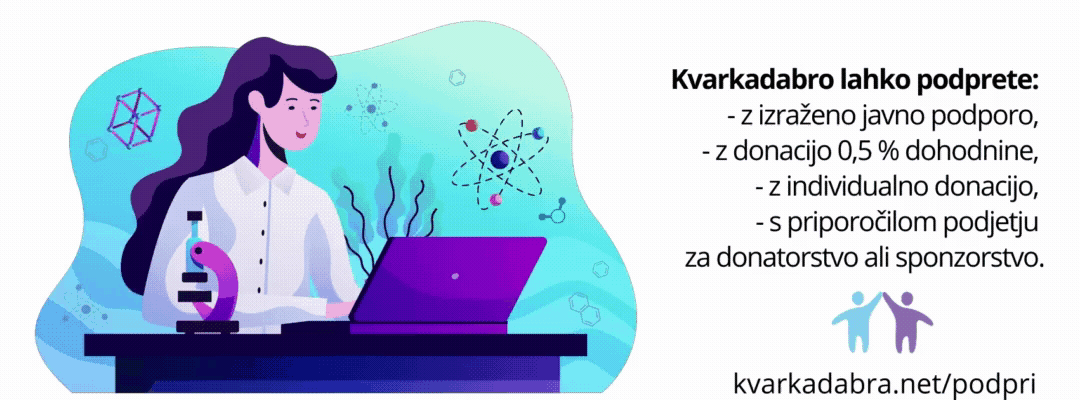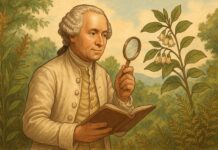Nekaj odlomkov iz pravkar objavljenega teksta A Plan To Defend Against the War on Science, ki ga je napisal Shawn Otto, avtor knjige The War on Science: Who’s Waging It, Why It Matters, What We Can Do About It (2016).
We’ve seen the emergence of a “post-fact” politics, which has normalized the denial of scientific evidence that conflicts with the political, religious or economic agendas of authority. … The situation around science has grown so partisan that Hillary Clinton turned the phrase “I believe in science” into the largest applause line of her convention speech accepting the Democratic Party nomination. … Those on the left are more inclined to accept the evidentiary conclusions from biological and environmental science but they are not immune to antiscience attitudes themselves. There, scientifically discredited fears that vaccines cause autism have led to a liberal anti-vaccination movement, endangering public health. Fears that GMO (genetically modified) food is unsafe to eat, equally unsupported …
Such confirmation bias has been enabled by a generation of university academics who have taught a corrosive brand of postmodernist identity politics that argues truth is relative, and that science is a “meta-narrative”—a story concocted by the ruling white male elite in order to retain power—and therefore suspect. The claims of science, these academics argue, are no more privileged than any other “way of knowing,” such as black truth, female truth or indigenous truth. We can’t know, a Minneapolis professor recently argued, that Earth goes around the sun, for example, because these sorts of worldviews have been dislodged by paradigm shifts throughout history. Thus, each of us constructs our own truth, and the job of an educator or a journalist is to facilitate that process of discovery.
The ideas of postmodernism align well with the identity politics of the left, and they have helped to empower disadvantaged voices, which always adds to the conversation. But what works in this case for political discourse is demonstrably false when applied to science. A scientific statement stands independent of the gender, sexual orientation, ethic background, religion or political identity of the person taking the measurement. That’s the whole point. It’s tied to the object being measured, not the subject doing the measuring.
By undermining science’s claim of objectivity, these postmodernists have unwittingly laid the philosophical foundation for the new rise of authoritarianism. Because if there is no objective evidence that has ultimate credibility, how is one to settle competing claims of truth, such as those made by Trump? Without objective truth, the nattering of warring pundits can go on forever, and can only be settled by those with the biggest stick or the loudest megaphone—in short, by authoritarian assertion, a situation not of postmodernism but of premodernism. Which is exactly what’s happening. And which runs completely counter to the enlightenment ideas of American democracy and the journalism that is supposed to inform it. …
Industry’s war against science isn’t limited to climate change. A host of public relations campaigns over the last five decades have spent billions of dollars with the express purpose of sowing public doubt about science. The techniques are usually the same: highlight cherry-picked facts provided by paid physicians or scientists whose alternative conclusions support your agenda; emphasize the need for healthy debate (when there really is none); attack the integrity of mainstream science and scientists; emphasize the negative consequences of tackling the problem; feed stories to sympathetic journalists (or purchase a news outlet); fund “Astroturf” groups to create the illusion of grassroots support; call for “balance”; and give money to lawmakers who will vote your way. … The central message is always: because we can’t be 100 percent certain, we should do nothing.
The partisan split has been exacerbated by these campaigns, and by a news media that has been trained for two generations in the false postmodernist view that there is no such thing as objectivity. Journalism schools teach it; it’s contained in reporter guidelines and repeated by leading journalists.
… journalists often seek to find stand-ins who will provide opposing arguments and create “balance,” so they can appear as neutral arbiters in a playground spat. But the journalistic principle of balance gets into trouble when there is a matter in which significant evidence from science can be brought to bear. Public relations firms know this and take advantage of it to manipulate journalists. …
“Wherever the people are well informed,” Thomas Jefferson wrote, “they can be trusted with their own government.” We have to develop more robust ways of incorporating rapidly advancing scientific knowledge into our political dialogue, so that voters can continue to guide the democratic process and battle back authoritarianism as we did at our foundation and have done throughout our history. That will require the media to rethink their role in reporting on issues in which scientific knowledge is crucial. Is that idealistic? Yes. But so were America’s founders.








